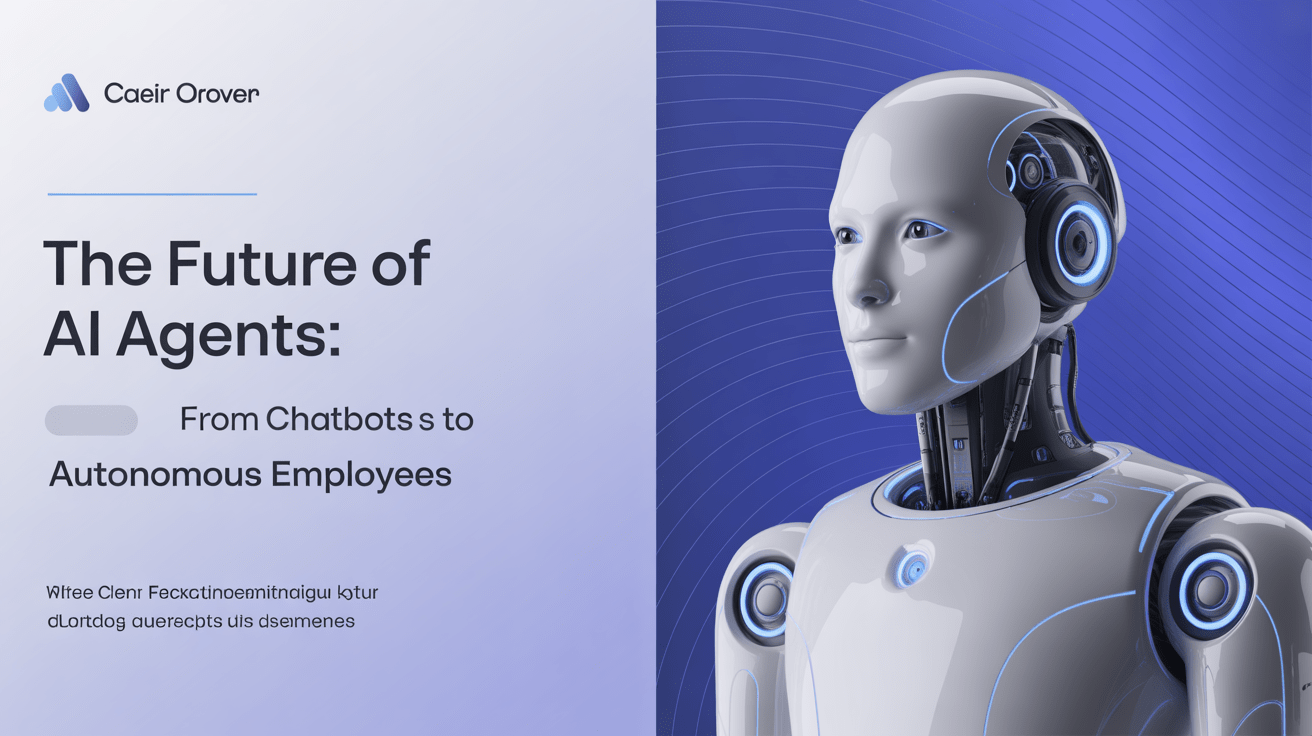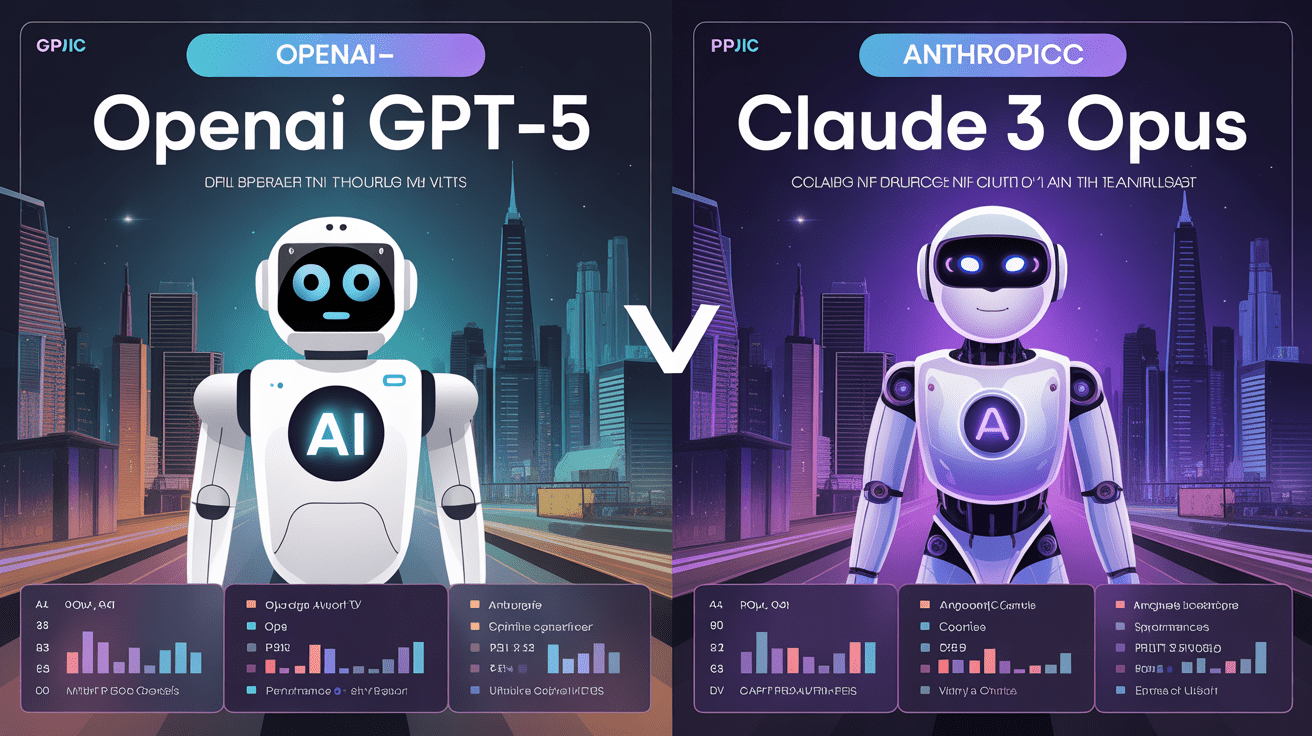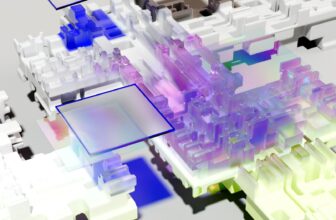
Introduction
The rapid maturation of AI agents marks a pivotal shift in how enterprises, governments, and individuals engage with technology daily. Originally confined to simplistic chatbot interactions, AI agents have now evolved into elegant autonomous entities capable of decision-making, learning, and executing complex tasks with minimal human intervention. As industries harness these digital employees, the integration of artificial intelligence powered by advanced machine learning frameworks and scalable cloud infrastructures is unlocking unprecedented opportunities for innovation, operational efficiency, and customer engagement worldwide.
With breakthroughs in natural language processing (NLP), reinforcement learning, and multi-agent systems, AI agents transcend traditional boundaries to become active participants within digital workforces. this article offers an in-depth analysis of this transformation, leveraging insights from leading AI research, industry case studies, and the latest cloud-native technologies that are redefining the concept of autonomous digital labor.
Understanding AI Agents
At its core, an AI agent is a software entity designed to perceive its habitat through data inputs, reason or learn from that information, and undertake actions aimed at achieving specific goals autonomously. Unlike reactive chatbots that follow scripted responses, modern AI agents employ advanced cognitive architectures that enable adaptability, context-awareness, and multi-modal communication.
The evolution of AI agents has been propelled by pioneering research at institutions such as MIT and IBM, where interdisciplinary teams have combined insights from cognitive science, machine learning, and robotics to create agents capable of complex interactions and task execution. The rise of agent-based modeling and reinforcement learning algorithms has especially enabled agents to optimize strategies through continuous interaction with dynamic environments.
In the broader digital ecosystem,AI agents increasingly serve as the connective tissue between cloud services,edge devices,human users,and IoT hardware,orchestrating workflows and synthesizing data at scale. This integration is setting the foundation for a new era where AI agents not only support human decision-making but actively participate in the roles traditionally performed by human employees.
Technical Foundation
The backbone of contemporary AI agents lies in a convergence of foundational technologies, including robust machine learning models, scalable cloud computing platforms, and sophisticated software architectures facilitating autonomy and interoperability.
The recent surge in Transformer-based language models like GPT (Generative Pre-trained Transformer) architectures, as documented by OpenAI, has empowered AI agents to process and generate nuanced human-like text across multiple contexts. Coupled with reinforcement learning techniques, agents can refine thier behavior through trial-and-error interactions or simulated environments, dramatically improving task performance.
Underneath these AI models, cloud platforms provided by industry leaders such as Google Cloud, Amazon Web Services, and Microsoft Azure offer elastic compute resources, advanced APIs for AI services, and container orchestration tools – all vital to hosting, training, and scaling AI agents globally. Microservices architectures combined with Kubernetes and serverless frameworks enable modular, event-driven AI agents that can integrate seamlessly with existing enterprise ecosystems.
Furthermore, developments in multi-agent systems architecture allow disparate agents to collaborate, negotiate, and learn collectively, simulating a digital workplace analogous to human teams. This form of distributed intelligence situates AI agents at the forefront of emerging paradigms in cloud-native software design and edge computing.

Real-World Applications
AI agents have permeated a wide range of industries, each showcasing distinct manifestations of autonomy and intelligence enhancing operational workflows and user experiences.
In the customer service sector, AI-driven chatbots originally relegated to scripted FAQ responses have evolved into omnichannel virtual assistants capable of handling complex queries, cross-selling, and troubleshooting with emotional intelligence.Leading enterprises, including NVIDIA and Google, have invested heavily in conversational AI platforms that integrate voice recognition with sentiment analysis, driving higher engagement and reduced operational costs.
Beyond customer-facing roles, AI agents are transforming enterprise automation. Autonomous agents orchestrate end-to-end business processes – from supply chain management to financial auditing – leveraging robotics process automation (RPA) integrated with AI to reduce human error and cycle times. Amazon Web Services provides frameworks for deploying AI agents as autonomous digital employees handling mundane repetitive tasks, allowing human workers to focus on strategic initiatives.
In the space of cybersecurity, AI agents are now frontline defenders, continuously monitoring network traffic, detecting anomalies, and initiating defensive protocols without human input. This proactive posture, supported by real-time machine learning monitoring tools, is critical to counter increasingly sophisticated cyber threats.
Healthcare is another frontier where AI agents act as virtual nurses, patient monitors, and diagnostic assistants, optimizing clinical workflows and improving patient outcomes through personalized care insights generated by deep learning models.
Advantages and Business Impact
The deployment of autonomous AI agents yields quantifiable benefits across multiple dimensions, notably in productivity, cost-efficiency, and innovation velocity.
Organizations leveraging AI agents report average productivity increases of 30% or more by automating routine tasks, according to data compiled by Statista. Costs associated with human error and operational delays decline as agents operate at scale with consistent accuracy. Gartner’s latest research highlights that by 2025, 70% of all organizations will have advanced digital workers performing at least 20% of their workforce’s activities, underscoring AI agents’ integral role in digital transformation strategies.
The rapid prototyping and machine learning-based adaptability of AI agents accelerate innovation cycles by enabling real-time feedback, continuous learning, and predictive analytics at enterprise scale. This dynamic capability allows businesses to pivot swiftly in volatile markets and customize services tailored to granular customer segments.
Moreover, the scalability of cloud-based AI architectures reduces capital expenditure, democratizing access to advanced AI functionality for startups and mid-sized companies, and fostering a more competitive and innovative business landscape.
Challenges and Ethical Considerations
Notwithstanding their promise, AI agents confront important technical, ethical, and regulatory challenges that demand careful navigation.
Technically, creating truly autonomous agents capable of reliable decision-making under ambiguity remains an open research challenge. Limitations in contextual understanding, bias in training data, and vulnerability to adversarial attacks expose critical weaknesses in deployed systems. As noted in studies on arXiv,openness and explainability of AI agents’ decisions are key to building trust and facilitating regulatory compliance.
Ethically, delegating employee-like responsibilities to AI agents raises profound questions around accountability, labor displacement, and privacy. Harvard Business Review editorials emphasize the need for robust governance frameworks to ensure AI agents operate within human-defined ethical boundaries and that workforce transitions are managed with social duty.
Data privacy remains notably sensitive, as autonomous AI agents often require access to vast troves of personal and proprietary information. Implementing privacy-by-design principles and leveraging emerging technologies such as federated learning and blockchain can mitigate risks but require ongoing vigilance and innovation.
Market Trends and Future Vision
The AI agent market is witnessing explosive growth fueled by venture capital influx, technological convergence, and shifting enterprise priorities. Industry analysts at TechCrunch and The Verge report that startups focused on autonomous digital employees, multi-agent collaboration platforms, and AI governance tools are outperforming traditional AI service providers in investment attraction.
Looking ahead, we anticipate AI agents becoming increasingly specialized and contextually clever, enabled by continuous advances in machine learning and hybrid cloud-edge architectures. The integration of AI agents with robotics and IoT devices will further blur digital-physical boundaries, ushering in new paradigms of workforce augmentation.
Additionally, regulatory environments are expected to mature globally, balancing innovation incentives with frameworks ensuring AI safety, fairness, and privacy. This evolving landscape will catalyze the emergence of ethical, compliant AI agents embedded within enterprise architectures enhancing human capabilities rather than replacing them outright.
Expert Perspectives
Dr. Fei-Fei Li, a pioneer in AI and former Chief Scientist at Google Cloud AI, has articulated that “The future of AI agents lies in their ability to work symbiotically with humans, leveraging the complementary strengths of human intuition and machine precision.”
Sam Altman, CEO of OpenAI, in a recent keynote stated, “Autonomous AI agents represent the next frontier in AI democratization, empowering every institution to have its own intelligent workforce operating at scale and speed previously unimaginable.”
Industry veteran and AI ethics expert Timnit Gebru emphasizes, “Ensuring AI agents act responsibly and transparently is not only an ethical imperative but a prerequisite for widespread adoption and societal benefit.”
FAQs
Q: How is AI agents transforming the tech industry?
A: According to Wired, AI agents constitute a paradigm shift that is driving operational efficiency, innovation acceleration, and new forms of automation across sectors by autonomously executing complex tasks that were once exclusively human domains.
Q: What are the main technologies enabling AI agents?
A: The core technologies behind AI agents include Transformer-based language models, reinforcement learning, cloud computing platforms, and multi-agent system architectures, as supported by research from openai and cloud leaders like Google Cloud.
Q: What industries benefit most from autonomous AI agents?
A: Besides customer service, industries such as cybersecurity, healthcare, finance, manufacturing, and logistics are seeing transformative impacts from AI agents deployed as digital employees handling repetitive, data-intensive, or risk-prone tasks.
Conclusion
the trajectory of AI agents from basic chatbots to autonomous digital employees encapsulates one of the most profound technological evolutions of our era. Powered by advances in machine learning, cloud-native infrastructures, and sophisticated architectures, AI agents promise to redefine how organizations innovate, operate, and compete. While ethical and technical challenges remain, responsible advancement and deployment of AI agents will indisputably shape the next decade of digital innovation, augmenting human potential and catalyzing efficiency across industries globally.
Disclaimer: This article is for educational and informational purposes only. The content reflects industry analysis and does not constitute financial or business advice.






